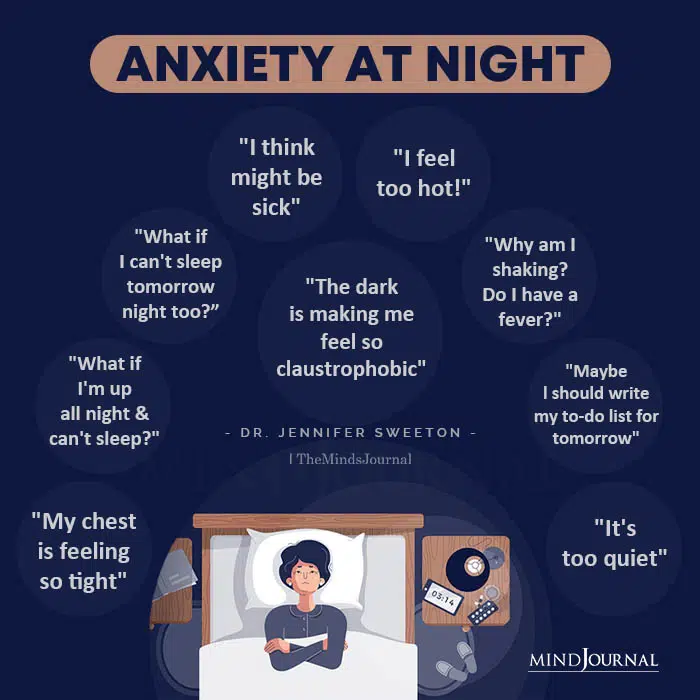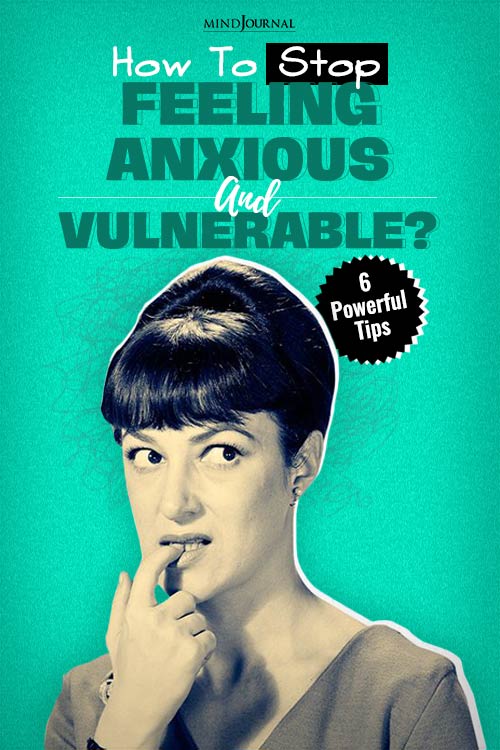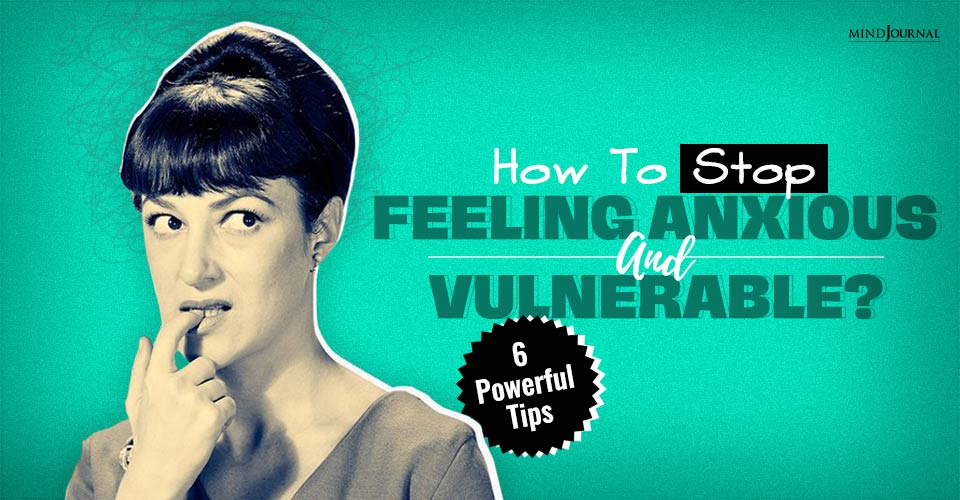If feeling anxious and vulnerable has become a part of your life and you are clueless about how to deal with it, check this blog for six powerful coping techniques for anxiety.
“I don’t have any more hand sanitizer, and all of the stores are sold out,” Marla* told me. “I’m glad that I’ll be working from home next week,” she added, “although I think I might go nuts just being alone in my small apartment.”
Matt* told me, “I’m not worried about myself. But I’m concerned about my 86-year-old dad. I’d like to go see him, but I’d have to travel by public transportation, and then I’d be taking a chance of contaminating him.”
Jared* said, “I think this fear-mongering is just making everything worse. How much of it is hype? And what’s the reality of the danger? Nobody has any answers.”
And Melissa* said, “I’m going to be home with my children and husband for the foreseeable future. I’m terrified about everything that’s going on in the world. How am I going to manage?”
In the last few days, almost every conversation in my psychotherapy office has been tinged with anxiety, if not panic. Concerns about COVID-19 colored almost every session, no matter who the client was, and no matter what problems had brought them into therapy. My colleagues report much the same—even if anxiety about COVID-19 isn’t the main topic of a session, almost every client mentions it in one way or another when they enter the room.
Even individuals who are not in high-risk categories are anxious. And while the methods being instituted to help contain the virus are giving people some hope, they are also, as Jared said, increasing rather than diminishing the sense of worry and vulnerability in many people.

Research has shown that stress can exacerbate both physical and emotional vulnerability, so it is important to reduce stress at the same time that we’re working to avoid the possibility of contamination. But how do you lower your stress level when everything around you seems to be conspiring to increase your anxiety?
Many of my colleagues have been writing about how to manage anxiety in this time of high stress. I’ve collected several of their suggestions and added some of my own.
First, take realistic steps and precautions to protect yourself, your loved ones, and others around you from the disease by following the CDC’s (Centers for Disease Control) guidelines.
In her book 50 Ways to Soothe Yourself Without Food, Susan Albers says that there are two big categories of soothing: Soothe your body and soothe your brain.
Here’re 6 powerful Coping Techniques For Anxiety and Vulnerability
1. Let’s Start With Soothing Your Body.
Albers suggests a number of ways to stop feeling anxious, including exercise, sleep, soothing scents, a warm, comforting bath, self-massage, and self-hypnosis (for which you can find several online apps). Some of these are easy enough to do. Exercise, which research has shown to be effective in lowering stress, may already be part of your life when you’re at your office, but it’s just as important now, whether you’re working from home or staying in with your family.
Getting a physical workout lowers stress hormones and raises the endorphins or “feel good” chemicals in your body. Right now, although gyms and exercise studios are closed, many are offering live online classes; and there are plenty of online yoga, Zumba, Pilates, and other exercise videos that you can choose from. If you’re on your own, but want company, get a friend to watch it and work out at the same time, while each in your own home.
If you’re home with kids or a partner, find something that you can all do, push the furniture to the walls, and get moving together. Getting outside can be important as well. Go for a run or a walk—observing social distancing rules — and get the added benefits of being outside, breathing deeply, exercising, and at least seeing other people from a safe distance.
Also Read 10 Anxiety Facts You Must Know To Manage It Better
An extra note about seeing others outside — many people have complained that wearing masks and keeping distance makes us feel afraid of one another. Make the effort to say hello, from a distance, or to offer a friendly wave. Most people will appreciate it, and you may find yourself feeling more connected and less isolated, even without close contact.
2. Cleaning Your Home Can Be A Way Of Soothing Yourself.
Albers further suggests that cleaning your home can be a way of soothing yourself when you are feeling anxious and vulnerable.
Doesn’t necessarily work for all of us (I’m one of the people who likes my house and office to be neat and tidy, but who’d rather do anything than clean, straighten, or neaten myself). But if it is soothing to you to clean or organize or straighten, then, by all means, use this time to do exactly that.
If you live alone, set aside some specific time or determine a particular goal, so that you don’t end the day exhausted and having done nothing but clean. If you’re with a partner, a friend, children, or any other configuration of people, get them involved in the task. Don’t worry if there’s some squabbling involved. That’s just part of being together. If it doesn’t get out of hand, it might even be a way of letting off some of the built-up anxiety!
Also read: What A Panic Attack Feels Like: 3 Science-backed Ways To Cope
3. Soothing Your Brain
Soothing your brain when feeling anxious, according to Albers, can involve reading, watching a show you love or have wanted to catch up on, or doing a craft or other kind of engaging project.
This is a good time for any and/or all of the above. Puzzles, crafts, and art projects also help when you’ve got children at home whom you’d like to get off of their technology for at least part of the day.
“When you’re feeling anxious, remember that you’re still you. You are not your anxiety.” ~Deanne Repich
4. Social Contact Can Be Extremely Important In A Time Of Heightened Anxiety And Vulnerability.
In their book Connected: The Surprising Power of Our Social Networks and How They Shape Our Lives—How Your Friends’ Friends’ Friends Affect Everything You Feel, Think, and Do, scientists Nicholas A. Christakis and James H. Fowler share research about the power of social connections to impact how we feel, think, and act.
It may surprise you to realize how much social support you get from your job, but as businesses have sent their employees home to work, many of us have lost one of the most stable and comfortable casual social situations in our lives.
This is a good time to make the most of all of your support systems. Reach out to friends and family. Check-in with colleagues. Make contact with casual acquaintances.
In fact, it’s an opportunity to grow some new connections and reconnect with family and friends we haven’t had time to talk to. Also, remember those who may be having a hard time and text, call, or email them to offer them some human contact. Just the process of giving some attention to others can decrease your own sense of vulnerability.
And you might find that you get something back from them that you didn’t even expect. I contacted a friend in Italy whose busy travel schedule generally makes it hard for us to visit, but who is, because of the Italian government’s attempts to contain the virus, required to stay put. Not only was she happy to have the “virtual” contact, but she also had plenty of time to chat.
Research has shown that feeling anxious and stressed can exacerbate both physical and emotional difficulties.
The end result of all of this is something of a quandary. The decision to have people work from home is to help contain the COVID-19 virus, but both the separation from colleagues and the constant bombardment with news about the current state of the COVID-19 crisis can put an additional strain on both our bodies and our psyches.
While the desire for contact is a healthy, basic human need, it doesn’t need to translate into living with someone else, nor does it mean that those of us who identify as introverts are not psychologically healthy, as Susan Cain, a leading spokesperson for introverts and author of the book Quiet: The Power of Introverts in a World that Can’t Stop Talking, has made abundantly clear!
Also read 50+ Inspirational Quotes For Depression And Anxiety
But it does mean that it’s not only OK but even a good thing if you want contact during the day. And with anxiety levels sky-high these days, it’s important to make an effort to make some contact. But it’s also important to select carefully who you are going to be in touch with.
Someone whose energy adds to your own sense of vulnerability may be comforted by speaking with you, but be sure to counteract that interaction with a conversation with someone who is calmer and more comforting to you.
5. Limit Your Consumption Of News Reports When You’re Feeling Anxious
Tempting as it can be to constantly check on the status of COVID-19 or any other existing crisis, chances are that you won’t miss anything significant by closing down your news feed and limiting your checks to every few hours. If you want to stop feeling anxious and vulnerable, limit your consumption of news reports.
In a blog that she wrote for parents who are trying to manage their own and their kids’ coronavirus anxiety, psychologist Rebecca Kennedy puts it this way, “Right now, we are faced with a deluge of information, but most of the information is the same: more uncertainty and waiting. Flooding ourselves with reminders of the uncertainty only increases our panic.”
Also Read 7 Words To Overcome Your Anxiety
6. And Finally, Look For Something Positive In The Experience
Always look for something positive in the experience whether it’s the opportunity to spend quality time with your family, a moment for reconnecting with friends, or a chance to get involved in an activity you haven’t been able to devote time to recently. That’s the best way to cope with anxiety.
My Italian friend shared a poem by Mariangela Gualtieri, an Italian poet, part of which I’ll share with you, although unfortunately, it hasn’t yet been translated into English, and I’m sure that Google Translate and I have butchered the beauty of it.
This is just part of two stanzas of her powerful poem—I’m giving it to you in Italian and in my poor translation:
There is gold, I think, in this strange time.
Maybe there are gifts.
Gold nuggets for us. If we help each other.
Look at the sky,
dyed dead ocher. Bake bread for the first time.
Look closely at a face. Sing a child to sleep.
Shake another hand with your hand,
feel the strong connection. That we are together.
One organism. We carry the whole of our species
within us. We save it inside ourselves.
It can be hard to be optimistic while also being realistic in frightening times, and of course, it’s important not to simply ignore the realities that are going on. But perhaps a little optimism is just what the doctor ordered. That, and staying in touch with people who can help us find ways to feel a little bit saner in the midst of the panic and anxiety that are floating all around us.
Talk to your loved ones, your friends, your colleagues, and even people you don’t know very well, including some of the people who don’t have the luxury of being able to work from home. Remember that they’re feeling anxious too. By reaching out and connecting to them, you may even find yourself feeling better.
*names and identifying info changed to protect privacy
copyright@fdbarth2020
Try these coping techniques when you are feeling anxious and vulnerable and let us know in the comments below if you find them helpful and valuable.
References:
50 Ways to Soothe Yourself Without Food, by Susan Albers
Connected: The Surprising Power of Our Social Networks and How They Shape Our Lives -- How Your Friends' Friends' Friends Affect Everything You Feel, Think, and Do, by Nicholas A. Christakis and James H. Fowler
Quiet: The Power of Introverts in a World that Can’t Stop Talking by Susan Cain
Written by: F. Diane Barth, L.C.S.W Originally appeared on:Psychology Today Republished with permission









Leave a Reply
You must be logged in to post a comment.